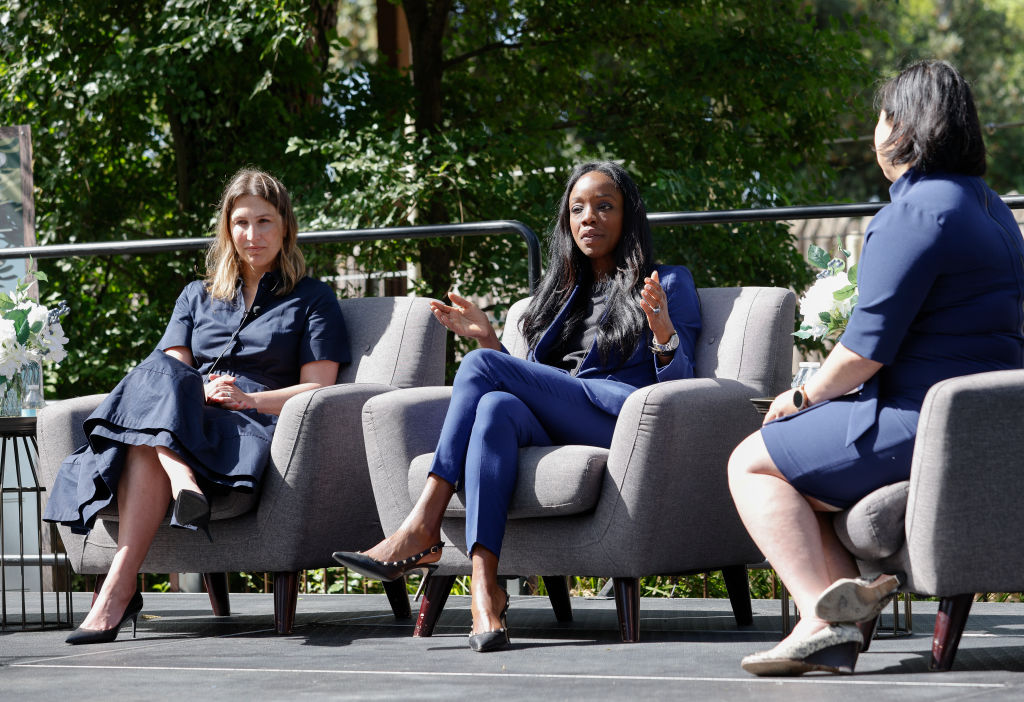Dr. Ebony Butler: How To Approach Therapy And Address Pain
Dr. Ebony Butler Addresses The Lack Of Black Therapists And Managing Pain
Certified psychologist Dr. Ebony Butler discusses Black mental health, including questions to ask your therapist, and how to manage minor aches and pains. In this thoughtful discussion, host Ericka Dunlap raises frequently asked questions about mental health care, in partnership with The Advil Pain Equity Project.
The Advil Pain Equity Project is facilitating these necessary conversations to work toward a system in which pain relief is accessible and equitable for Black communities.
“Research shows there’s a disparity in healthcare treatment and outcomes,” Dunlap notes. “Mental health treatment has historically been stigmatized and it’s an area that’s been neglected within our communities.”
Dr. Butler addresses how to recognize the need for mental health support. “You don’t need to be in a crisis to seek help,” she says. “If you are noticing that things are off and you don’t feel like yourself, it’s the perfect time to go in.”
Managing Physical and Emotional Pain
It’s common for physical symptoms to arise before an underlying mental health concern, the doctor notes.
“A lot of times people will actually start to notice physical symptoms before they even notice anything emotional or psychological,” she says. “Sometimes you’ll notice chest pains, sometimes you’ll have stomach issues. Irritable bowel syndrome, headaches, muscle tension, those are the things that we’ll see people complain about when the root issue is actually emotional distress.”
Dr. Butler recommends keeping a self-care kit on hand equipped with everyday comforts like your favorite tea or a calming playlist. “If you notice that you have muscle aches or migraines, make sure that you have your meds in there, something a simple Advil can help with,” says the doctor. “Make sure you have the things that you can go to that are easily accessible for you to begin to take care of yourself.”
Diversity In Mental Health Care
A common issue in the mental health field is the difficulty in finding therapists and other providers who can speak to the client’s experience. While Black therapists are in high demand, their numbers pale in comparison to their white colleagues.
Dr. Butler addresses this disparity, offering a few key strategies aimed at increasing access to diverse mental health resources. “We can make sure that therapy is affordable. Cost is a huge barrier to engaging in therapy,” she says. “We can also make sure that providers who look like the people who need to be served are in the offices.”
Despite the current shortage of Black therapists, it’s still possible to find culturally competent mental health providers, the doctor notes. “There are directories that are geared towards providers being social justice-driven and having therapy modalities that are social justice-informed,” she says.
Dr. Butler encourages anyone considering therapy to feel empowered to ask the important questions.
“Ask questions like, ‘What is your experience with working with people who look like me?’ So it’s not so much that the therapist holds all of the power, but the client holds the power in the room too,” she affirms. “I think that people need that understanding when they’re coming in because it makes them comfortable in a place and industry where there’s already so much mistrust.”
The Advil Pain Equity Project is shedding light on the need for diversity in mental health care, and is working toward equitable and accessible pain relief for the Black community.
Addressing Pain Bias
The Advil Pain Equity Project is a multi-year commitment to addressing systemic racial bias in the diagnosis and treatment of pain, at the source.
Marking the launch of The Advil Pain Equity Project, Advil is:
- Providing the first-ever grants through The Advil Pain Equity Fund to Morehouse School of Medicine and BLKHLTH as they partner with Advil to develop a pain equity course that will be made available to medical students across the country next year.
- Launching the campaign, Believe My Pain, which is focused on providing patients and healthcare experts with the opportunity to share their personal experiences with pain inequity.
- Developing digital tools and resources aimed at helping Black patients improve their clinical experiences in the near term, in partnership with BLKHLTH.
Watch more from Advil’s A Healthier Us campaign here.
SEE ALSO:
Medical Racism: Black Med Student’s Viral Tweet Spotlights False Beliefs About Skin Color And Pain
Do Black People Feel Less Pain? White Emergency Room Patients Prescribed Opioids More, Data Shows


















